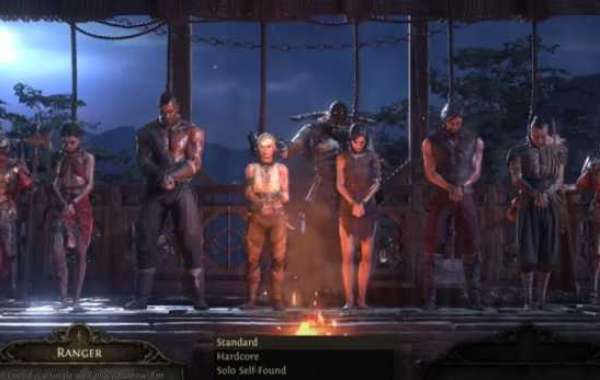As Path of Exile 2 (commonly known as Poe 2) continues to build anticipation ahead of its release, discussions around its in-game systems have already taken center stage. One of the most controversial topics in the community revolves around the manipulation of the Poe 2 economy—specifically, whether certain trading behaviors are ethical strategies or outright exploits. With the game’s complex barter-based trading system and reliance on Poe 2 currency rather than traditional gold, the question becomes more nuanced than it first appears.
Understanding Poe 2 Currency and Its Role
Unlike many other action RPGs, Path of Exile 2 uses a unique currency system where items such as Chaos Orbs, Exalted Orbs, and other crafting materials function as currency. These items are not only used for trading but also for crafting and modifying equipment. This dual functionality means that Poe 2 currency holds intrinsic value in both the player-driven economy and the gameplay mechanics.
As a result, players and traders closely monitor supply and demand fluctuations in the market. Price tracking websites, trade bots, and real-time market data are common tools used to gain an edge. While some players engage in basic flipping—buying low and selling high—others employ more elaborate tactics that border on market manipulation.
What Constitutes Economy Manipulation in Poe 2?
Manipulation can come in several forms. A few common strategies include:
Artificial Inflation: A coordinated group may buy out a specific Poe 2 currency or item, driving up scarcity and causing prices to spike.
Price Fixing: Multiple accounts or players listing an item at similar inflated prices to reset the perceived market value.
Botting and Automation: Using software to quickly snatch up underpriced listings, reducing opportunities for regular players.
While technically possible within the game's mechanics, these actions challenge the notion of fair play. The developers have outlined rules against automation and third-party software, but grey areas still exist when it comes to player coordination and economic influence.
Is It Ethical or Just Smart Trading?
Herein lies the core debate: if players are using knowledge, observation, and in-game tools without breaking any official rules, is it unethical? Many argue that in a game built on complexity and depth, strategic trading is just another layer of gameplay. Others believe that manipulating the Poe 2 economy gives an unfair advantage, especially when it shuts out casual players from accessing necessary gear or crafting materials.
The ethicality may also depend on transparency and intent. Is the player trying to earn a profit through effort and insight, or are they exploiting mechanics to create artificial scarcity? When market control begins to resemble monopolistic behavior, the line between strategy and exploitation begins to blur.
The Developer’s Role and Community Responsibility
Ultimately, the responsibility to regulate the economy falls on both the developers and the community. Grinding Gear Games has taken steps to curb abuse through moderation, item scarcity tuning, and banning accounts that violate terms of service. However, the evolving nature of player behavior often requires ongoing adjustments.
For players, understanding the Poe 2 currency system and its market forces is crucial. Engaging with the economy fairly contributes to a more balanced and enjoyable experience for everyone. While mastery of trading should be rewarded, deliberate manipulation at the expense of others risks turning the game’s rich economy into a playground for the few.
Poe 2 economy manipulation sits in a grey area between strategic trading and exploitative behavior. With the game’s intricate barter system and valuable Poe 2 currency at its core, the lines of ethics are often subjective and situational. As the community grows and the game evolves, the hope is that both players and developers work together to maintain a competitive yet fair economic landscape.













